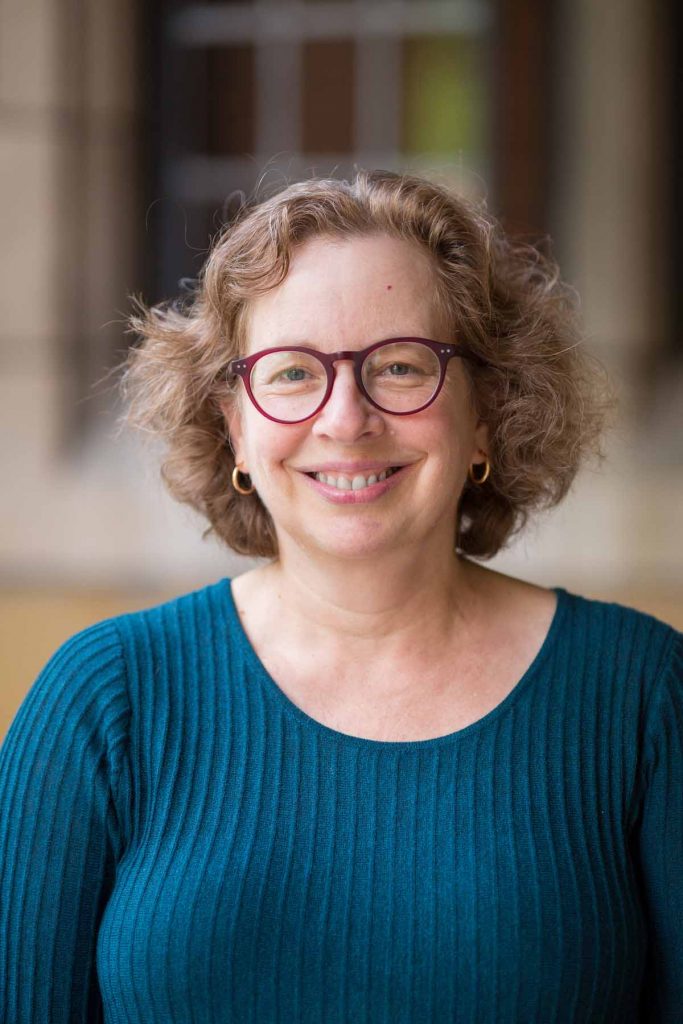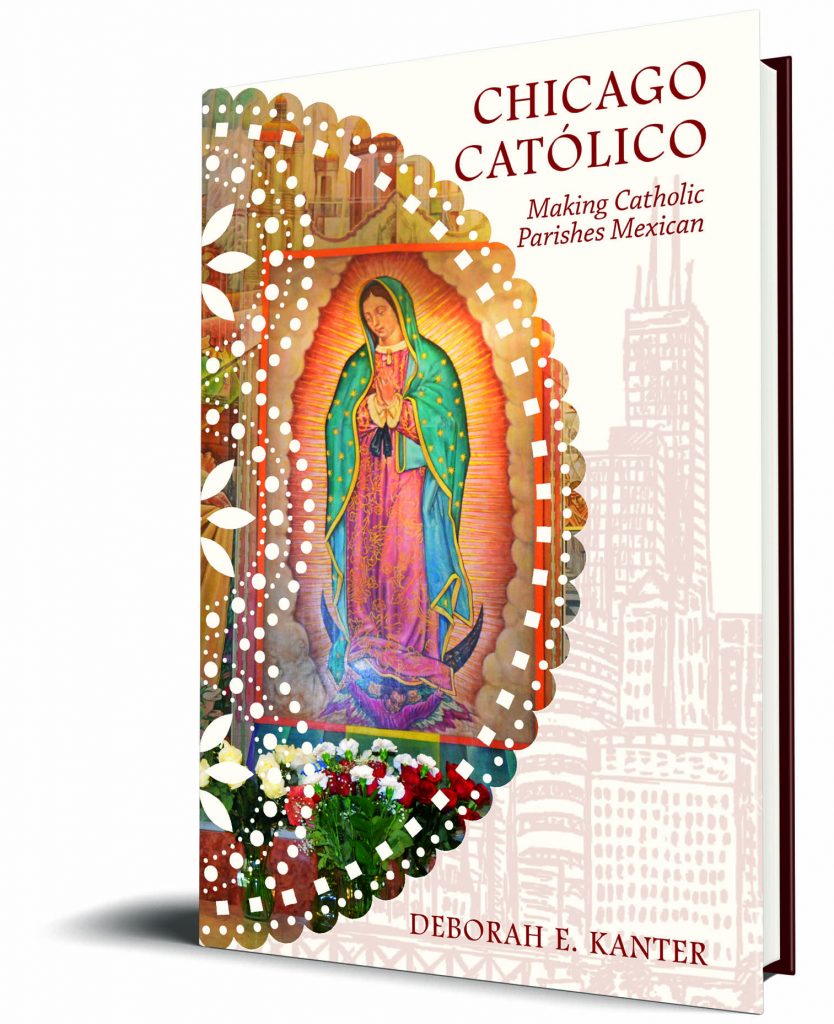Author of Chicago Católico: Making Catholic Parishes Mexican, Deborah E. Kanter answers questions about her influences, discoveries, and motivations for writing her book.
Q: Why did you decide to write this book?
I am trained as a scholar of Mexico, which was the subject of my first book, Hijos del Pueblo: Gender, Family and Community in Rural Mexico. For decades I watched the Mexican population increase and disperse in Chicago. On the surface, I recognized a great deal of transplanted culture and innovation. I wondered how Mexicans created new communities and identities in Chicago. Catholic churches, I hypothesized, would offer rich resources to learn more about what it means to be Mexican in Chicago. I was right.
Q: Who were your biggest influences?
I read John Demos’ The Unredeemed Captive which put storytelling and narrative at the forefront of a well-documented history. That book sparked my goal to write in a much more engaging and accessible fashion than most monographs. Carol Spindel’s creative nonfiction workshop empowered me to pursue that approach. I owe a great debt to Robert Orsi’s writing about lived religion. His work taught me that so much about being Catholic doesn’t happen simply in church, but rather in the interplay between people, spaces, and neighborhoods.
Q: What is the most interesting discovery you made while researching and writing your book?
I came to a much stronger understanding of the diversity of the Mexican population in the US. In interviewing older subjects in Chicago, most of them were born here, were English dominant, and had little first-hand contact with Mexico. This presents quite a contrast with recent decades when US-raised children can be fully in touch with family and culture in Mexico via tv, social media, and regular travel for many.
Q: What myths do you hope your book will dispel or what do you hope your book will help readers unlearn?
The notion that Mexicans are newcomers—they have been part of the Chicago scene for a century!

The belief that settling in the U.S. meant secularization for immigrants and their children. Mexican immigrants to Chicago were more than “hog butchers to the world,” mill hands, and factory workers. They had families, built communities, formed sports teams, and went to the movies. And Mexicans certainly went to Mass. Religious life countered their subordination as workers.
Q: What is the most important idea you hope readers will take away from your book?
Catholicism proved decisive in the success of Mexicans’ entry and integration in Chicago. The creation of just two Spanish-speaking parishes in the 1920s allowed thousands of newcomers to gain a toehold in the US, create new homes, and raise families in a place that became less diasporic and felt more like home. These historias from Chicago offer many lessons for many places in the US today.
Q: What do you like to read/watch/or listen to for fun?
I’m often very moved by literary fiction by contemporary authors including Hector Tobar. Jhumpa Lahiri, Alice McDermott, Tim Hernandez, and Nicole Dennis-Benn. I look forward to Gustavo Arellano’s weekly newsletter/canto. I enjoy discovering forgotten gems of American fiction writing such as Chicagoans Hugo Martínez-Serros and Meyer Levin. The Canadian comedy Kim’ Convenience is my tv sweetspot. Post pandemic, I’ll be back exploring forgotten streets, tucked-away churches, and abandoned factories in Detroit and Chicago.

